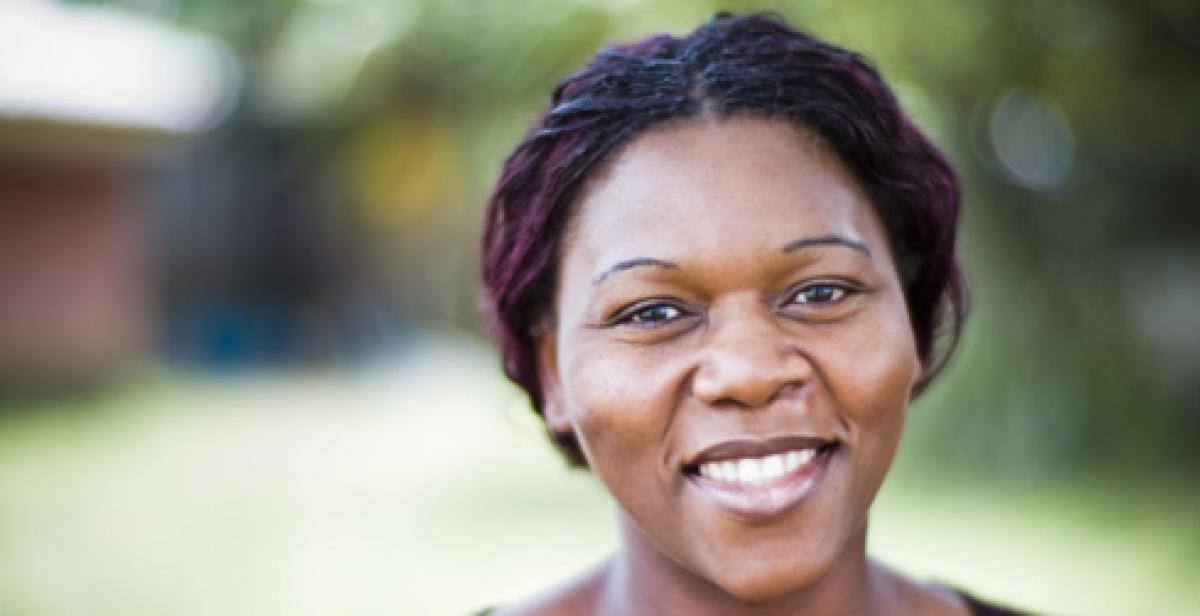Progressio ‘Local Hero’ Teclah Ponde works in Zimbabwe’s prisons with ZACRO (Zimbabwe Association for Crime Prevention and Rehabilitation) on issues of HIV and AIDS. Here, Joseph, one of the prisoners who is being helped by ZACRO, explains how he managed to keep going inside one of Zimbabwe's maximum security jails.
Life in Chikurubi Farm Prison is not easy. The food situation when I was imprisoned was quite bad. I was fortunate that I got visitors twice a week who were able to bring food in for me. But for the majority of the inmates, life is a huge challenge. As a result some inmates are forced by circumstances to trade sexual favours for food – a high risk activity as far as HIV transmission is concerned.
In the prison, I worked closely with the Rehabilitation Department and was selected for the HIV and AIDS Peer Education Programme conducted by ZACRO. I welcomed this because it gave me an opportunity to develop myself and equip myself with new knowledge, and at the same time help make a difference in other inmates’ lives.
Support Group
I was selected as a group leader and I was spearheading all the peer education activities of my group. We met once a week during the weekends to discuss each individual’s progress, challenges faced and how they could be overcome. As a group, we managed to establish a support group of seven inmates who were HIV-positive and getting treatment. To us this was a great achievement because it is not easy for someone to disclose their status, especially within a prison environment. One runs the risk of being discriminated against because a prison is a harsh community with its own rules of engagement.
Despite this, we still managed to establish the group, helped them to conduct regular meetings and encouraged them to continue despite the challenges. I am glad to mention that the group is still going strong and helping each other to cope and live within the prison conditions. During one of my peer education activities at Chikurubi Farm Prison, I came across an inmate whom I began to counsel. During one of the counselling sessions, I encouraged the inmate to go for an HIV test. He looked at me and asked me a question that I was battling with within myself. He asked me whether I had been tested or not. I told him the truth: that I had not yet done so and that I was equally scared of the outcome of the test.
Heart-to-heart
We began to have a heart-to-heart talk about the advantages of knowing one’s status against living in ignorance. At the end of this discussion, we agreed to go together for the HIV test which we did. It was not an easy step to take but I am glad we took the step and now we both know our HIV status. What I learnt from this experience was that peer education activities are a strong stimulus for self examination, and give one an opportunity to face up to one’s own fears. I am glad I was able to overcome my fears and as a result could reach out to another inmate. I am glad to say that when I left prison, the community where I live welcomed me back. Indeed it has been a source of support to my family during my period of incarceration and I thank God for them.
Now that I am back home, I am faced with the challenges of getting employment and a sustainable livelihood for my family in such a harsh economic environment – one that is different from the prison environment but equally difficult. I am finding this hard to do, but I have not lost hope yet. I still believe that an opportunity will come my way sooner or later.
Joseph (not his real name) was sentenced to 8 months in prison for fraud. He was interviewed by Teclah Ponde – a Progressio ‘Local Hero’ in Zimbabwe.
Why not sponsor a development worker like Teclah or become a Progressio development worker?
Find out more about our work in Zimbabwe and how you can help
Photo: Teclah Ponde works as an HIV programme development advisor with ZACRO (Photo © Marcus Perkins/Progressio).



